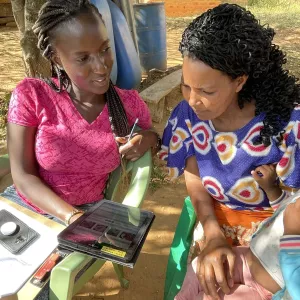How research is helping to transform food environments in Kenya
Our research team in Kenya has explored approaches in recent years including: Understanding people’s dietary patterns (what they eat and how often), recognizing the socio-economic factors that determine their food choices, promoting the use of locally available flora and fauna as a source of nutrition, and leveraging the natural connection between food and culture to improve nutrition in diverse populations

How research is helping to transform food environments in Kenya
Our research team in Kenya has explored approaches in recent years including: Understanding people’s dietary patterns (what they eat and how often), recognizing the socio-economic factors that determine their food choices, promoting the use of locally available flora and fauna as a source of nutrition, and leveraging the natural connection between food and culture to improve nutrition in diverse populations in Africa. This blog series collects stories nurtured by the experience and insights of different stakeholders in Kenya.
All these stories are interwoven and connected through the tool, Agrobiodiversity Diet Diagnosis Interventions Toolkit (ADD-IT), an application developed to improve nutrition in the African region (by The Alliance of Bioversity International and CIAT, in partnership with the Tokyo University of Agriculture (TUA), and with support from Japanese Ministry of Agriculture Forestry and Fisheries). Stakeholders include farmer groups, community health volunteers and people from the wider community, students from the TUA and Japan International Cooperation Agency (JICA), the County Ministries of Health and Agriculture, and other development agencies such as Biovision Africa, Western Region Agricultural Technology Evaluation (WeRate), and Sustainable Organic Farming and Development Initiatives (SOFDI).

